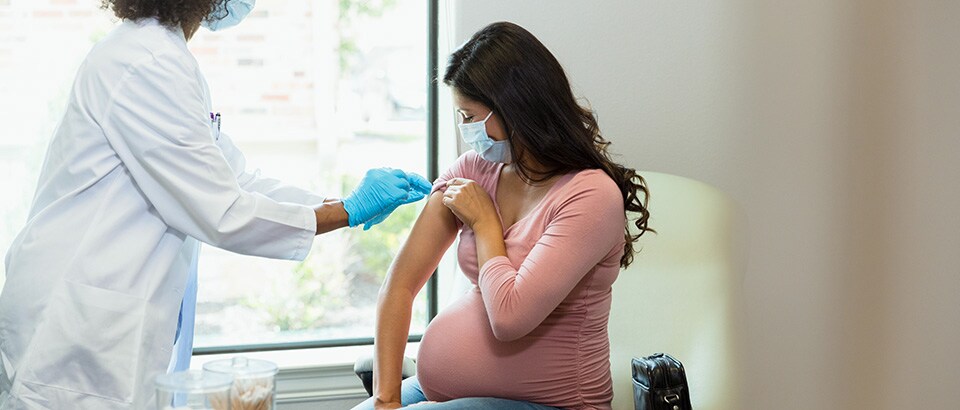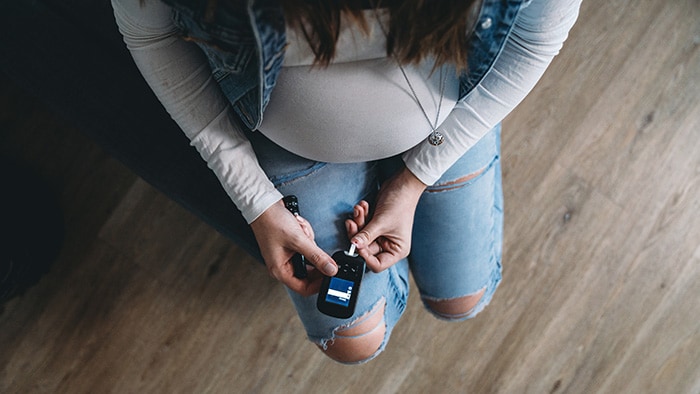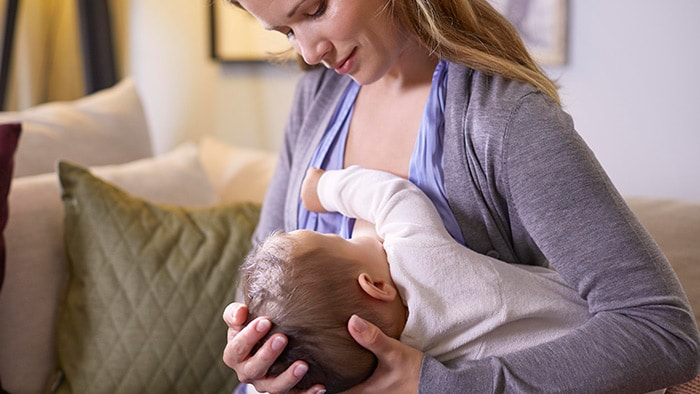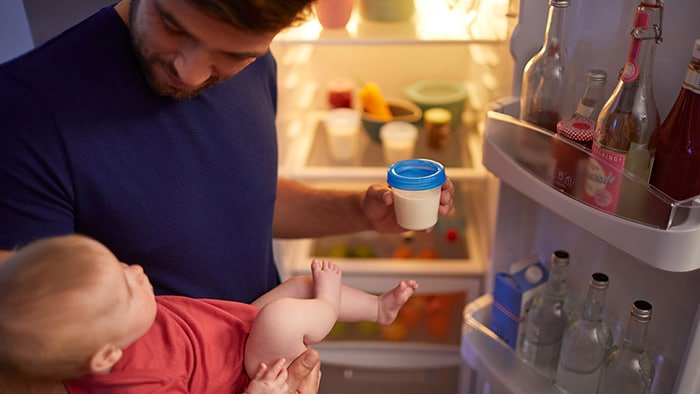November 2021
COVID-19 vaccination and lactation

New mothers have been concerned about the effect of COVID-19 vaccines on their breast milk - and their babies. Recent research finds minimal impact.
When trials were being held to test COVID-19 vaccines, the scientists chose not to include pregnant and lactating women. However, pregnant women who are infected with COVID have a higher risk of complications. And many women within this age group work in healthcare, where are they can be exposed to COVID-19 and, if infected, could also spread the virus to other vulnerable people.
So it was important to determine whether these women could be safely vaccinated - and if vaccination would affect lactation. Researchers were also interested in discovering if vaccinations affected breastfed babies.
Prioritizing pregnant women
To better understand motherhood and vaccination, The International Society of Infectious Diseases in Obstetrics and Gynecology (ISIDOG) collected and analyzed COVID-19 vaccination data and guidelines. Based on their review of literature, they recommend prioritizing the vaccination of pregnant women - preferably with mRNA vaccine such as Pfizer-BioNTech or Moderna.1
This preference is due to the fact that mRNA vaccines do not contain genetic material from the virus, as is the case with vector vaccines, such as AstraZeneca and Janssen/Johnson&Johnson. The mRNA vaccines do not interact with or alter a person's DNA, and are unable to transmit the virus to a mother's breast milk. In fact, vaccinated mothers should be encouraged to breastfeed their infants, as they may also benefit from their mother's antibodies.
Protection for baby
To see what happens with mother's milk after vaccination, research2 was carried out in the USA among lactating women who were going to be vaccinated with Pfizer-BioNTech or Moderna vaccines. These mothers contributed breast milk samples prior to their 1st dose, between vaccinations, and 2 weeks after their 2nd dose.
Previous research had revealed that, mothers who had been infected with COVID-19 produced antibodies that appeared in their breast milk. This new study discovered a significant increase in the COVID-19-specific immunoglobins in the samples of breast milk, starting from day 7, and day 14, after these mothers had received their vaccinations.
This scientific evidence proves that mothers who receive COVID-19 vaccinations produce antibodies in their breastmilk, which could also offer protection to their infants. These researchers also suggest that, as vaccination levels increase, COVID-19 antibodies will also be found increasingly in donor milk - which will benefit even more babies.
Effect on lactation
But does COVID-19 vaccination actually affect lactation? In a survey of 4455 breastfeeding mothers3, researchers collected data using an online questionnaire - targeting mothers who were currently breastfeeding or lactating.
Only 1.7% of these mothers reported negative effects on breastfeeding. By far, the majority of the women (90.1%) experienced no changes whatsoever. Others said they experienced an increase in breastmilk (3.9%), while 6% of the women said their milk production decreased.
Side effects
Among the moms who reported a negative impact on lactation, it appeared that these changes were linked to vaccination side effects. Illness, in general, tends to decrease milk production. With vaccinations, however, the side effects are short-term and low-grade - which could explain why so few mothers reported lactation problems.
It's not that they had different or more intense side effects than non-pregnant people. Just like the non-pregnant people in clinical trials, these moms had fever, fatigue and other symptoms - more often after the 2nd dose. Knowing this, moms would be wise to ask for extra support in the days following vaccination, to keep their child's daily routines going strong. And, thankfully, pain symptoms are easily treated with non-prescription painkillers without affecting breastfeeding.
A small percentage (7.1%) of mothers said their breastfed child experienced side effects after her vaccination - generally after the 2nd dose. This included perceptions of increased fussiness and sleeping more than usual. There were also a few reports of diarrhea and feeding more than usual. Some moms even said their child was less fussy than usual.
Confidence and hope
An overwhelming majority of the mothers in this survey were confident in their decision to be vaccinated - and would recommend it to other breastfeeding mothers. With the above research, midwives and other healthcare professionals have more tools to back up discussions about vaccination - and to reassure new mothers.
Couple this with the fact that the breast milk of vaccinated mothers passes antibodies onto their child, vaccination offers hope as we work together to protect moms and babies from COVID-19 infection.
Share this article:
Related Articles
Not a Healthcare Professional?
References
1. Donders et al. On The Behalf Of The Covid-Isidog Guideline Group. ISIDOG Consensus Guidelines on COVID-19 Vaccination for Women before, during and after Pregnancy. J Clin Med. 2021 Jun 29;10(13):2902.
2. Baird et al. SARS-CoV-2 Antibodies Detected in Mother's Milk Post-Vaccination. J Hum Lact. 2021 Jul 23:8903344211030168. doi: 10.1177/08903344211030168. Epub ahead of print. PMID: 34297643.
3. McLaurin-Jiang et al. Maternal and Child Symptoms Following COVID-19 Vaccination Among Breastfeeding Mothers. Breastfeed Med. 2021 Jun 25. Epub ahead of print.



